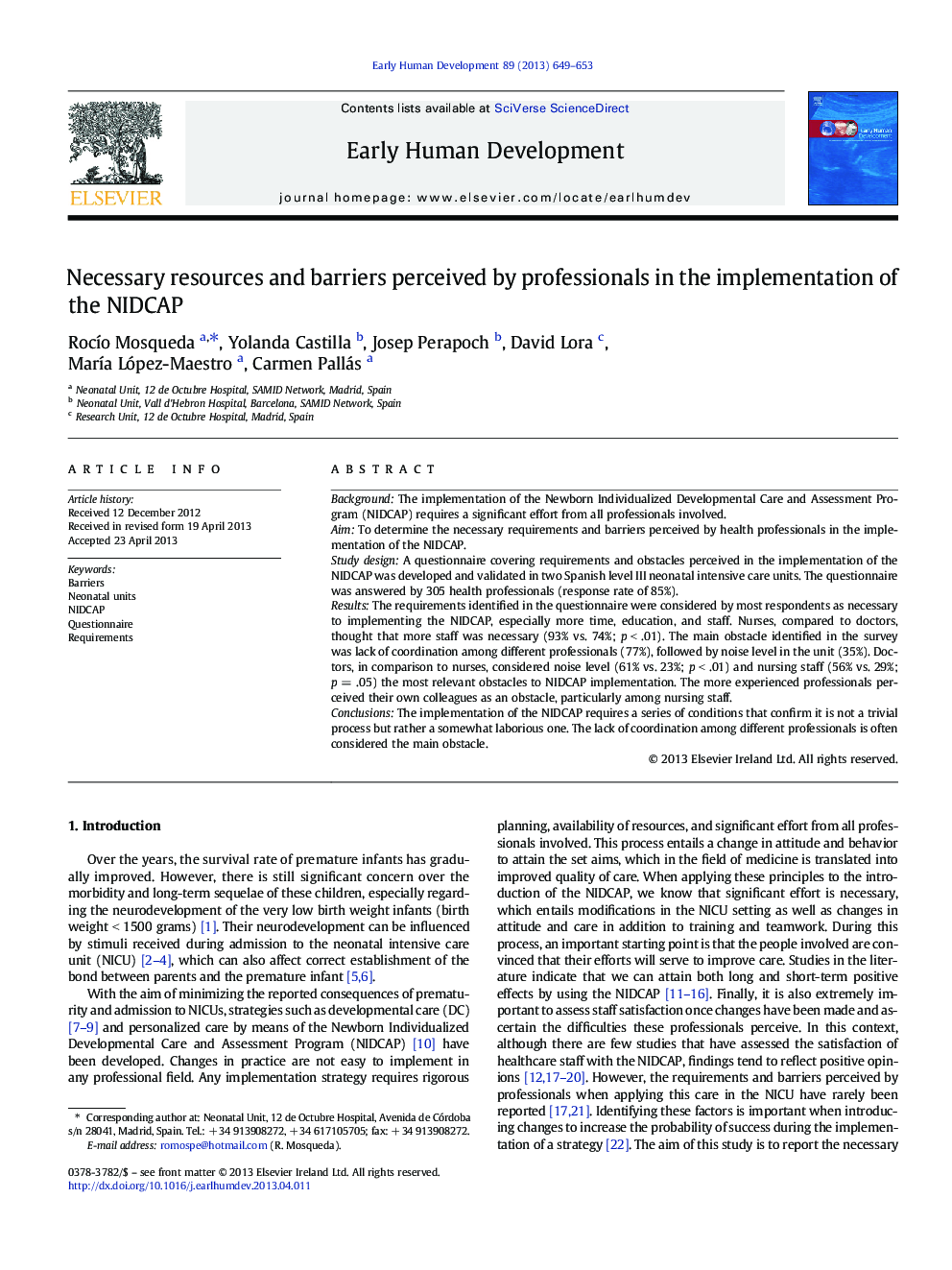| Article ID | Journal | Published Year | Pages | File Type |
|---|---|---|---|---|
| 6172293 | Early Human Development | 2013 | 5 Pages |
BackgroundThe implementation of the Newborn Individualized Developmental Care and Assessment Program (NIDCAP) requires a significant effort from all professionals involved.AimTo determine the necessary requirements and barriers perceived by health professionals in the implementation of the NIDCAP.Study designA questionnaire covering requirements and obstacles perceived in the implementation of the NIDCAP was developed and validated in two Spanish level III neonatal intensive care units. The questionnaire was answered by 305 health professionals (response rate of 85%).ResultsThe requirements identified in the questionnaire were considered by most respondents as necessary to implementing the NIDCAP, especially more time, education, and staff. Nurses, compared to doctors, thought that more staff was necessary (93% vs. 74%; p < .01). The main obstacle identified in the survey was lack of coordination among different professionals (77%), followed by noise level in the unit (35%). Doctors, in comparison to nurses, considered noise level (61% vs. 23%; p < .01) and nursing staff (56% vs. 29%; p = .05) the most relevant obstacles to NIDCAP implementation. The more experienced professionals perceived their own colleagues as an obstacle, particularly among nursing staff.ConclusionsThe implementation of the NIDCAP requires a series of conditions that confirm it is not a trivial process but rather a somewhat laborious one. The lack of coordination among different professionals is often considered the main obstacle.
